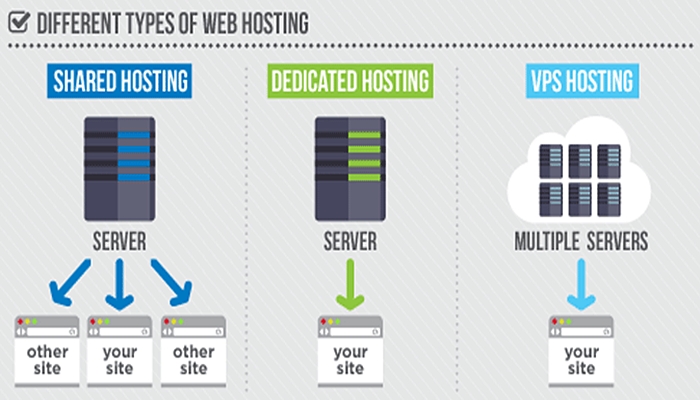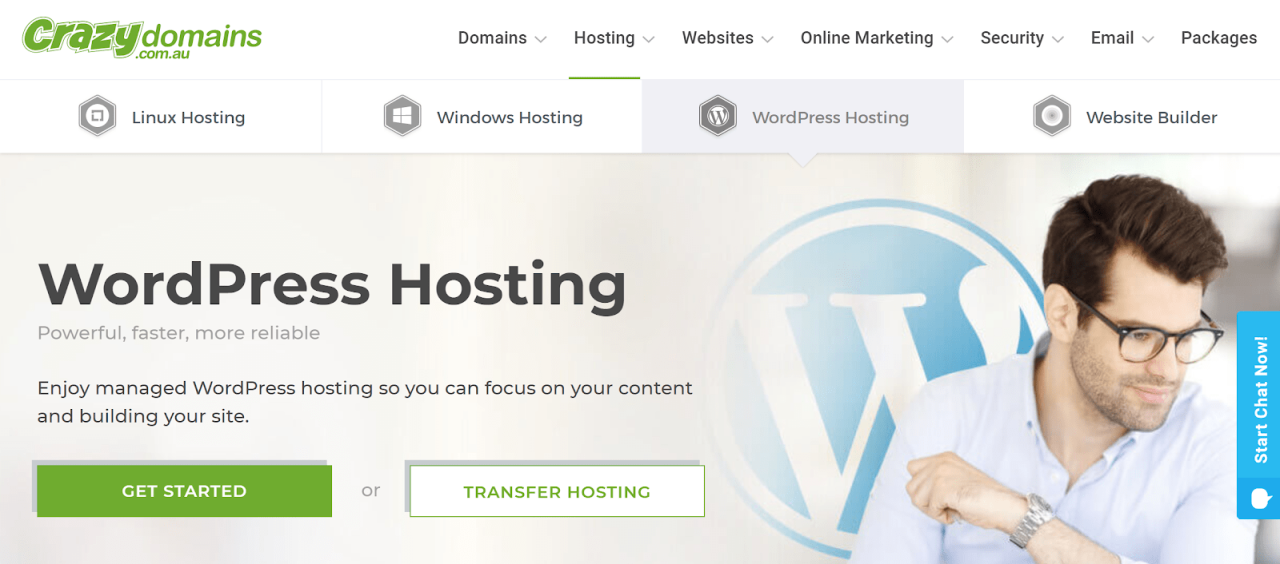Hosting reseller business presents a unique opportunity for entrepreneurs to tap into the ever-growing demand for web hosting services. By acting as an intermediary between hosting providers and end-users, resellers can leverage existing infrastructure to offer customizable hosting packages, catering to diverse needs and budgets.
This model offers numerous benefits, including lower startup costs, flexible scalability, and the potential for substantial profit margins. With careful planning and execution, a hosting reseller business can establish a strong presence in the competitive digital landscape, providing reliable and cost-effective solutions for clients.
What is a Hosting Reseller Business?

A hosting reseller business is a type of business that buys web hosting services from a wholesale provider and then resells them to customers under their own brand. They act as a middleman between the hosting provider and the end-user, offering customized packages and support to their clients.
The Role of a Reseller in the Hosting Industry
Resellers play a crucial role in the hosting industry by providing access to affordable and reliable hosting solutions to a wider range of customers. They cater to businesses and individuals who may not have the resources or expertise to manage their own servers. Resellers typically offer various hosting services, including shared hosting, VPS hosting, dedicated servers, and cloud hosting, with different features and pricing plans tailored to specific customer needs.
Key Differences Between a Hosting Reseller and a Web Hosting Company
The main difference between a hosting reseller and a web hosting company lies in the ownership and management of the infrastructure. A hosting reseller does not own or manage the physical servers or data centers; they lease resources from a wholesale provider. On the other hand, a web hosting company owns and operates its own servers and infrastructure, providing complete control over its hosting environment.
A hosting reseller acts as a distributor, while a web hosting company is the manufacturer.
Here’s a table summarizing the key differences:
| Feature | Hosting Reseller | Web Hosting Company |
|---|---|---|
| Infrastructure Ownership | Leases resources from a wholesale provider | Owns and operates its own servers and infrastructure |
| Server Management | Limited control over server management | Full control over server management |
| Customer Support | Provides support to customers | Provides support to customers |
| Branding | Operates under its own brand | Operates under its own brand |
| Pricing | Typically offers competitive pricing | Typically sets its own pricing |
Choosing the Right Hosting Provider
Choosing the right hosting provider is crucial for your reseller business’s success. It directly impacts your service quality, customer satisfaction, and profitability. A well-chosen provider can offer reliable infrastructure, excellent support, and a range of features to enhance your offerings.
Key Factors to Consider
When selecting a hosting provider, consider the following factors:
- Reliability and Uptime: A provider’s uptime is essential for maintaining uninterrupted service for your clients. Look for providers with a proven track record of high uptime, ideally exceeding 99.9%.
- Performance and Speed: Fast loading times are vital for user experience. Choose a provider with robust infrastructure and optimized servers that ensure swift website loading and application performance.
- Scalability: As your reseller business grows, your hosting needs will change. Ensure your provider offers scalable solutions that can accommodate increasing traffic and resource demands.
- Security: Security is paramount for protecting your clients’ data and your business’s reputation. Choose a provider with strong security measures, including firewalls, intrusion detection systems, and regular security updates.
- Customer Support: Reliable and responsive customer support is essential for resolving technical issues and addressing client inquiries promptly. Look for providers with 24/7 availability and multiple support channels.
- Pricing and Packages: Compare pricing plans and features to find a provider that offers a balance between affordability and the features you need. Consider factors like bandwidth, storage, and the number of websites you can host.
- Features and Tools: Evaluate the features and tools offered by different providers. Look for features like website builders, email marketing tools, and other resources that can benefit your reseller business.
Checklist of Features
Here’s a checklist of features to look for in a hosting provider:
- High Uptime Guarantee: Aim for a provider with a 99.9% or higher uptime guarantee.
- Fast Server Response Times: Ensure the provider has a fast server response time to minimize loading times for your clients’ websites.
- Scalable Resources: The provider should offer scalable solutions to accommodate your business’s growth.
- Robust Security Measures: Look for features like firewalls, intrusion detection systems, and regular security updates.
- 24/7 Customer Support: Ensure the provider offers 24/7 support via phone, email, or live chat.
- User-Friendly Control Panel: A user-friendly control panel simplifies website management and resource allocation.
- Backups and Data Recovery: The provider should offer reliable backup and data recovery options.
- Transparent Pricing: Ensure the provider offers clear and transparent pricing plans.
Popular Hosting Providers for Resellers
Several popular hosting providers cater specifically to resellers. Here’s a comparison of some of the top options:
| Provider | Key Features | Pros | Cons |
|---|---|---|---|
| Namecheap | Shared, VPS, and dedicated hosting; reseller plans; cPanel control panel; free domain name with reseller plans | Affordable pricing; user-friendly control panel; reliable uptime | Limited features compared to some competitors; customer support can be slow at times |
| HostGator | Shared, VPS, and dedicated hosting; reseller plans; cPanel control panel; free website builder; unlimited bandwidth and storage | Generous resources; free website builder; reliable customer support | Pricing can be higher than some competitors; limited server locations |
| GoDaddy | Shared, VPS, and dedicated hosting; reseller plans; cPanel control panel; website builder; domain registration services | Wide range of services; strong brand recognition; robust customer support | Pricing can be expensive; limited features in some plans |
| Bluehost | Shared, VPS, and dedicated hosting; reseller plans; cPanel control panel; free website builder; unlimited bandwidth and storage | Affordable pricing; free website builder; excellent customer support | Limited server locations; can be slow to respond to support inquiries |
Marketing and Sales Strategies: Hosting Reseller Business
Successfully marketing and selling your reseller hosting services requires a well-defined strategy. You need to reach your target audience effectively, showcase the value of your offerings, and build trust and credibility.
Marketing Channels
Marketing channels are the means by which you reach your target audience. Choosing the right channels is crucial for maximizing your marketing efforts and achieving your business goals.
Here are some effective marketing channels for a reseller hosting business:
- Content Marketing: Create valuable and engaging content, such as blog posts, articles, guides, and videos, that address the needs and pain points of your target audience. This content can attract potential customers and position you as an expert in the hosting industry.
- Search Engine Optimization (): Optimize your website and content for relevant s to improve your visibility in search engine results pages (SERPs). This will help you attract organic traffic and generate leads.
- Social Media Marketing: Leverage social media platforms like Facebook, Twitter, LinkedIn, and Instagram to connect with potential customers, share valuable content, and build your brand awareness.
- Email Marketing: Build an email list and send targeted email campaigns to nurture leads, promote your services, and keep customers informed about new offers.
- Paid Advertising: Consider paid advertising campaigns on search engines like Google and social media platforms to reach a wider audience and drive traffic to your website.
- Affiliate Marketing: Partner with other businesses or individuals in your industry to promote your services to their audience.
- Referral Programs: Offer incentives to existing customers for referring new clients to your business.
Sample Sales Pitch
A compelling sales pitch is essential for converting potential customers into paying clients. Your pitch should highlight the benefits of your services, address their pain points, and demonstrate your value proposition.
Here’s a sample sales pitch:
“Hi [customer name], I understand you’re looking for reliable and affordable hosting for your website. At [your company name], we offer a wide range of reseller hosting plans designed to meet the needs of businesses like yours. Our plans include [mention key features like unlimited bandwidth, disk space, email accounts, etc.]. We also provide 24/7 customer support and a 99.9% uptime guarantee. By choosing our reseller hosting, you can focus on growing your business while we take care of the technical details. Would you be interested in learning more about our plans?”
Legal and Regulatory Considerations
Navigating the legal landscape is crucial for any hosting reseller business. Understanding the applicable laws and regulations ensures your business operates ethically and avoids potential legal issues. This section will explore key legal requirements and data privacy regulations that impact hosting reseller businesses.
Legal Requirements for Operating a Hosting Reseller Business
It’s important to understand the legal requirements specific to your location and the type of hosting services you provide.
- Business Registration: Register your business as a sole proprietorship, partnership, or corporation. This involves obtaining necessary licenses and permits, depending on your jurisdiction.
- Tax Compliance: Adhere to tax laws and regulations, including collecting and paying sales taxes if applicable, and filing necessary tax returns.
- Contractual Agreements: Establish clear contracts with your hosting provider, customers, and any third-party vendors. These contracts should Artikel responsibilities, payment terms, and service level agreements (SLAs).
- Intellectual Property Rights: Respect intellectual property rights, including copyrights, trademarks, and patents. Ensure you have the necessary licenses and permissions to use any software or content provided by your hosting provider.
Data Privacy Regulations, Hosting reseller business
Data privacy regulations are increasingly important in the hosting industry. Understanding and complying with these regulations is essential to protect customer data and avoid legal penalties.
- General Data Protection Regulation (GDPR): The GDPR, implemented in the European Union, requires businesses to obtain explicit consent for data processing, provide transparency about data collection practices, and ensure data security.
- California Consumer Privacy Act (CCPA): The CCPA, effective in California, grants consumers rights regarding their personal information, including the right to access, delete, and opt-out of data sales.
Privacy Policy and Terms of Service
Having a comprehensive privacy policy and terms of service is essential for transparency and legal protection.
- Privacy Policy: Clearly explain how you collect, use, store, and protect customer data. This should include details on data retention policies, data security measures, and how customers can access or modify their data.
- Terms of Service: Artikel the terms and conditions of your hosting services, including service levels, payment terms, limitations of liability, and acceptable use policies.
Last Recap
Starting a hosting reseller business can be a rewarding venture, enabling you to contribute to the digital ecosystem while building a successful enterprise. By understanding the fundamentals of the industry, choosing the right hosting provider, and implementing effective marketing strategies, you can establish a thriving reseller business that meets the evolving demands of the online world.





